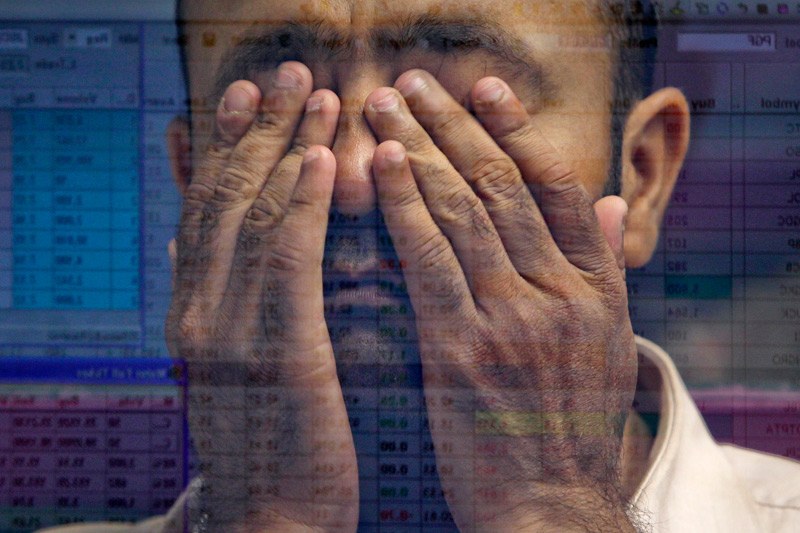Investing.com - Asian markets slid in morning trade on Tuesday as growing fears over a slowdown in the global economy weighed on investor sentiment.
The Dow Jones Industrial Average fell 2.11%, the S&P 500 lost 2.08%, while the Nasdaq Composite dropped 2.27% amid sign of fears over rate hikes.
The U.S. Federal Reserve will hold its final policy meeting of 2018 on Tuesday and Wednesday. The central bank is widely expected to raise rates by 25 basis points to a range of 2.25% to 2.5%.
The rate decision will be followed by a press conference with Chairman Jerome Powell.
In Asia, the Shanghai Composite and the SZSE Component fell 1.1% and 1.3% respectively by 10:15 PM ET (03:15 GMT), as investors kept a close watch on a major speech delivered by Chinese President Xi Jinping on Tuesday morning on the 40th anniversary of China's "reform and opening up."
"No one is in a position to dictate to the Chinese people what should or should not be done," Xi said during the address.
He then called for China to "stay the course" on its current path of reform.
"What to reform and how to go about the reform must be consistent with the overarching goal of improving and developing the system of Socialism with Chinese Characteristics and modernising China's system and capacity for governance," the Chinese leader added. "We will resolutely reform what should and can be reformed, and make no change where there should and cannot be any reform."
Hong Kong’s Hang Seng Index also slid 1.0% in morning trade.
Meanwhile, Japan’s Nikkei 225 declined 1.7% after the country’s government revised down its economic growth forecast for 2018 and 2019.
Japan's economy will grow 0.9% in fiscal 2018, the Cabinet Office said on Tuesday, compared with the previous projection of 1.5% increase.
In fiscal 2019 the economy will expand 1.3%, also down from the previous forecast of 1.5% growth.
Down under, Australia’s ASX 200 lost 1.0%. The Reserve Bank of Australia struck a slightly dovish tone in the minutes of its last policy meeting this year.
“The outlook for household consumption continued to be a source of uncertainty because growth in household income remained low, debt levels were high and housing prices had declined,” the RBA said Tuesday in Sydney. “Members noted that this combination of factors posed downside risks.”
Elsewhere, South Korea’s KOSPI was down 0.5%.
